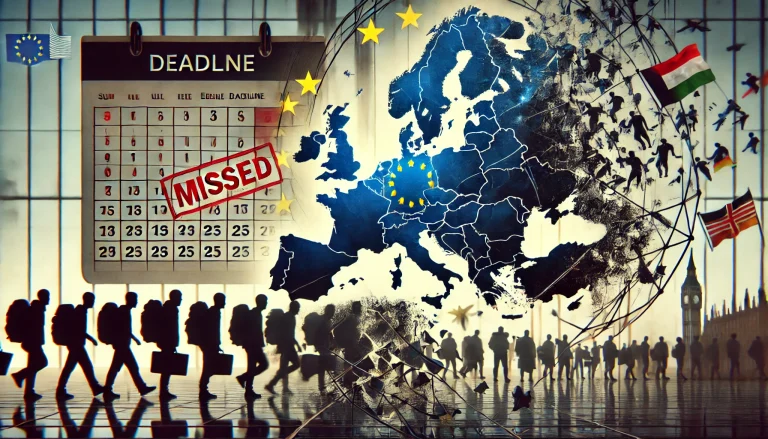As of December 13, 2024, only 14 out of 27 European Union member states have submitted their National Implementation Plans (NIPs) for the EU Pact on Migration and Asylum, missing the December 12 deadline.
The European Commission has expressed concern over the delays, emphasizing the importance of timely submissions to ensure the Pact’s effective implementation by mid-2026. A Commission spokesperson stated to Euronews , “We remain in close contact with all Member States and are supporting the remaining ones so that they can submit their plans as soon as possible.”
Poland has openly refused to submit its NIP, citing opposition to certain provisions of the Pact, particularly the mandatory relocation or financial contribution mechanisms for asylum seekers. Polish Interior Minister Tomasz Siemoniak emphasized the country’s focus on securing its eastern border amid tensions with Belarus, stating, “We are here in a positive mood following the announcement by the European Commission, which recognizes our arguments regarding border protection.”
Italy and Hungary have not publicly disclosed their positions regarding the submission of their NIPs. Both countries have previously expressed reservations about aspects of the Pact, raising concerns about potential delays in their compliance.
The EU Pact on Migration and Asylum, adopted in May 2024, aims to establish a comprehensive framework for managing migration across the EU. Member states were given a two-year transition period to prepare for its implementation, with NIPs outlining the necessary actions to ensure readiness.
The European Commission has indicated that it may consider proportionate measures against countries failing to submit their plans promptly, taking into account upcoming submissions and the overall context of the Pact’s implementation.
The inability of nearly half of EU member states to meet the deadline for submitting their National Implementation Plans raises serious concerns about the collective commitment to the Migration Pact. This delay highlights a persistent lack of urgency and coordination among EU nations, where political disagreements often overshadow the need for unified action. Without these critical plans, the vision of a cohesive migration policy remains fragmented, leaving refugees and asylum seekers to bear the brunt of inaction. As EU nations continue to prioritize national interests over shared responsibility, the promise of solidarity risks being reduced to empty rhetoric, exposing vulnerable populations to further instability and uncertainty.




